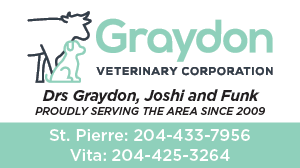With the municipal elections coming up on October 24, voters will be looking to our slates of candidates and judging them based on their ideas and platforms. This is the third article in an ongoing column by Clarence Braun, former mayor of Niverville, about the qualities of leadership we should look for in those who will lead our communities for the next four years.
In the past few months, I’ve shared about the general malaise in the voting public towards our democratic institutions. When it comes to municipal governments—the councils of our towns and municipalities—we need to better understand how they operate. This is the level of government closest to us, and the ways in which these councils function impact our lives with great significance.
Municipal governments function under an act of the provincial government—in Manitoba, it’s called The Municipal Act—and it’s true that they have limited powers relative to other governments.
For example, municipal governments cannot deficit finance and they must balance their books at the end of every year. Their primary income comes from collecting property tax, established through a mill rate that’s based on property assessments.
Another revenue stream is the annual grant that each community receives from the provincial government based on its population. The provincial and federal government also contribute grant monies at different times for infrastructure, and those monies are always given in tandem with matching funds from the municipal government.
The municipal government’s most significant responsibilities relate to providing infrastructure, such as streets, drainage, sewer, water, parks, and recreational and cultural facilities.
Each municipality is also responsible for a zoning by-law that is monitored by the province and ensures that there is a process allowing for commercial and residential development in an orderly and meaningful manner.
In short, it is the municipal government’s responsibility to ensure that people have a voice in how the community is developed. In the event that members of the community cannot agreement on issues of development, the province has a Municipal Board which acts as an arbiter between citizens and their local municipal government.
The local municipality has no responsibility when it comes to the costs of education except to collect those taxes on behalf of the local school board. They also have no direct responsibility for healthcare other than to work alongside the regional health authority.
That said, when it comes to healthcare, it’s worth noting that Niverville operates under a somewhat different model than is typical in Manitoba. Niverville has a community non-profit, Heritage Holdings Inc., which is supported by the town council, and together they have worked creatively with the province and the regional health authority to expand local health-related services.This unusual initiative has attracted the attention of the province and other communities for its innovation.
So how does a municipal government ensure that its residents find their voice? Every four years, on the fourth Wednesday of October, we get to vote.
But any council that relies solely on elections to hear the voices of the citizenry will probably invite people’s anger. The best way forward, the one that ensures healthy communities and healthy relationships between people and their council, is to embrace a policy of openness and transparency in all matters.
In my two terms as mayor, from 1995 until 2002, this was probably the greatest challenge I faced. Because here’s the reality: at times, council does have to keep initial conversations private when it comes to negotiating community opportunities. However, our council always felt the pressure to be more secretive than what I was personally comfortable with.
So I do understand the difficulty.
I have always believed that, given time, most people will come to a healthy understanding of a council’s decisions and policies. Most people just want their views to be respected in the process.
An overall policy of openness and transparency isn’t about always having everybody in agreement. That will never happen. But the open and transparent process creates opportunities for respect and trust. Without respect and trust, we will always fall short of being the best we can be as a community.
Back in 1995, I ran against a mayor who had previously been on council for more than 20 years. When I made the decision to run, I didn’t do it out of frustration, anger, or an intention to change everything. Rather, I saw that the people of Niverville had aspirations for the future, and by building consensus I felt that we could move the town forward in a new direction.
In that election, I never once spoke negatively about the mayor or members of his council. I hadn’t decided to run because I saw that something was wrong; I ran because I wanted to help realize the town’s potential. All of us can be frustrated when we see a problem. When that happens, do we also develop the heart and character to work alongside others to solve the problem?
As I write this, I am of course aware that this newspaper also reaches communities and municipalities beyond Niverville. To those people I ask: what do you see about your community’s future? Do you have something to offer through your involvement? Are you frustrated or angry? And if you find yourself in that place, how can you instead channel that energy toward working together with others to create a better tomorrow?



















